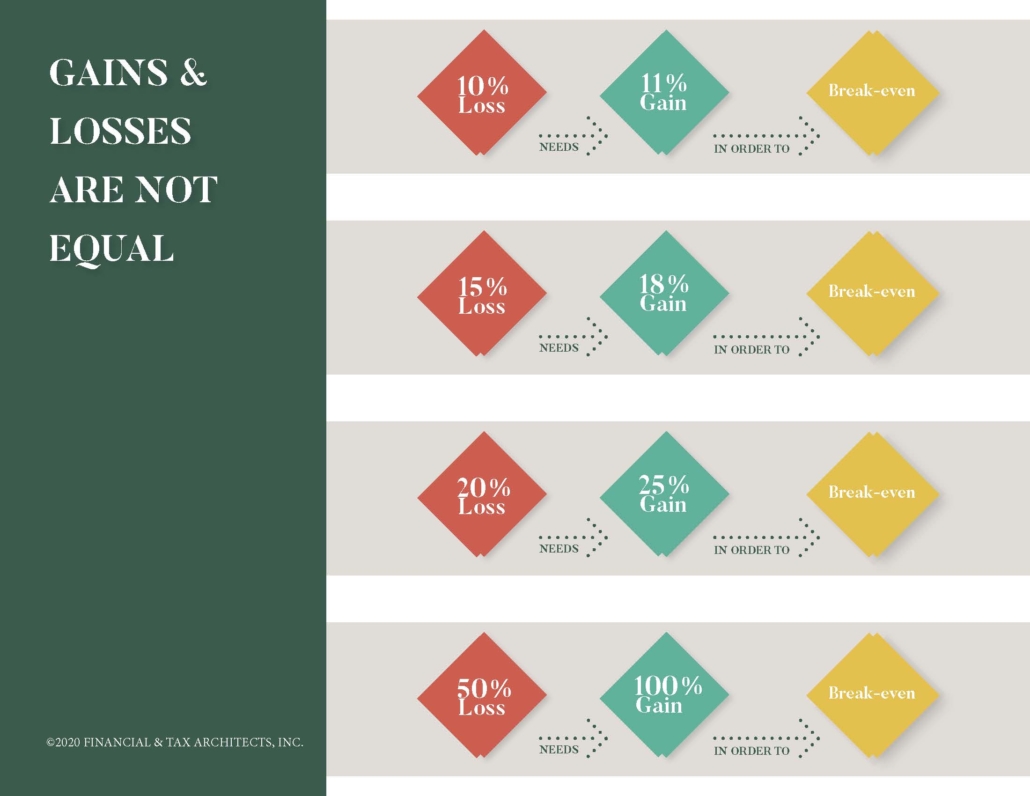Are you taking too much risk in retirement?
“Some things do not make me happy to say, but there is a lottery aspect to all of this: when you were born, when you retire, and when your children go to college. And you have no control over that.” John Bogle
Since the late 1800s, the stock market has gone through long periods of both bull and bear
market cycles. These are long periods of either mostly positive returns or long periods of low or negative returns. These cycles will impact your retirement. If you retired in 1983, you enjoyed 17 years of above average stock market returns, however if you retired in 2000, you would have endured two 50% drops in the stock market and may have gone broke if you relied on the stock market for your retirement income.
Fatal Fluctuations
Beginning in March of 2000 through early in 2003, the stock market dropped almost 50%. After finally getting back to even in 2007, the market proceeded to drop over 50% through early 2009. It wasn’t until 2013 when the stock market reached its March 2000 highs. Investors weathered a 13-year time-period of wild swings and zero market growth. This can be devastating to any retirement portfolio. We call these big downturns “fatal fluctuations” because they are fatal to your retirement goals. It’s also why the stock market should not be considered as an income source.
Large fluctuations are good for us when we are adding money to our portfolio regularly, we can buy more shares when share prices are lower. The opposite is true in retirement. Something to remember in retirement is that “Losses Hurt you More than Gains Help you™.” Here is an infographic that demonstrates this concept.

The math makes it quite clear there is something going on here, it is a fact that losses and gains are not equal. In retirement this can be devastating.
Sequence Risk
Something else that can have devastating consequences is the order of your investment returns. This is called sequence risk. This sounds complicated, but it is not.
During accumulation, the sequence of returns does not matter. If the fatal fluctuations happen early or late you can get to where you want to be because you have time and are not dependent on income produced from those assets.
The early years of your retirement tend to define the later years. If you suffer investment losses in the early years of retirement, which is a matter of luck, the odds of your assets lasting your lifetime have fallen off a cliff.
Combating Risk
We all have conscious and subconscious biases, although every investor claims to be free of them, and it is not surprising when these two important concepts are overlooked. Additionally, the majority of investors tend to invest more money in the markets when the risk levels are higher and take money out when the risk levels are lower.
In other words, we all want to invest when the economy looks brightest and are afraid to invest when the economy looks bleak. To combat this, wealthy investors employ the services of specialized investment managers who offer private wealth strategies. The wealthy count on those managers to weigh the inherent risks of investing in the financial markets.
Here to help
Avoiding market ups and downs is impossible. However, Scout Financial Group can help you with a plan to avoid the Fatal Fluctuations with your retirement accounts. At Scout Financial Group, our goal is to provide our clients with a worry-free retirement. We have expert advisors ready to build a plan to help you avoid Fatal Fluctuations and Sequence risk. Contact us today to schedule a discovery call and find out if our services are right for you.


